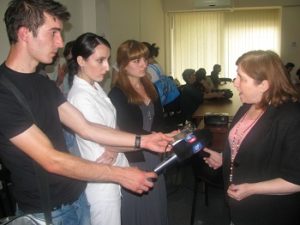LESSON
Lesson Learned: Renforcement des capacités des journalistes et blogueurs arabes pour la promotion des droits de l’Homme
The project was relatively weak in that costs were high and that it cannot be considered that the results achieved were commensurate with the expectations arising from the project document, or with the resources expended, even when taking into account the fact that political instability in the region increased the cost of activities.
Project Name
Project Partner
Arab Institute for Human Rights
Project Description
The objective of the project was to reinforce the capacities of Arab citizen journalists and bloggers in relation to the promotion and protection of human rights. The project was relevant as a human rights education activity, to the extent it responded to the fact that the targeted bloggers and journalists were not always familiar with the human rights principles and the international procedures for the protection of human rights. The project activities led to the acquisition of new skills by the participants which contributed to changes in the way they have carried out their blogging and journalistic work after the training sessions. It is of course not clear that the participants’ work has influenced the wider public. However, comments posted by readers suggest that some of the participants were able to encourage tolerant attitudes among their readers, for example in relation to gender equality or in debates about democracy.
Report
Evaluation Date
October 2014
Theme
Country
